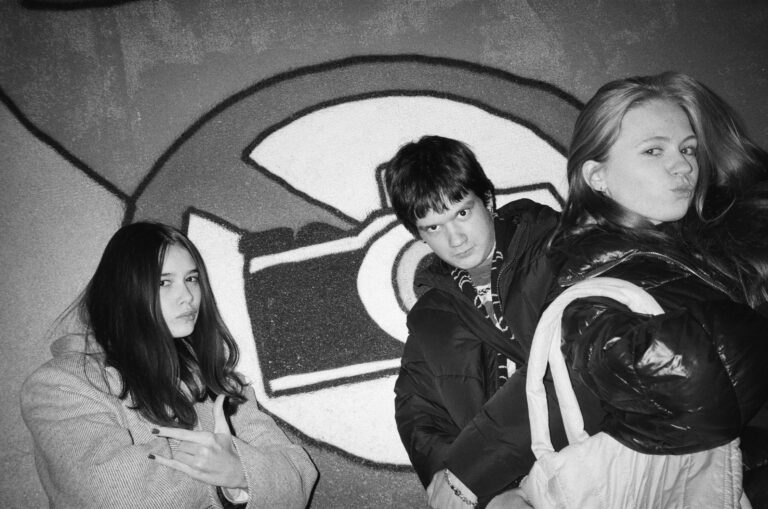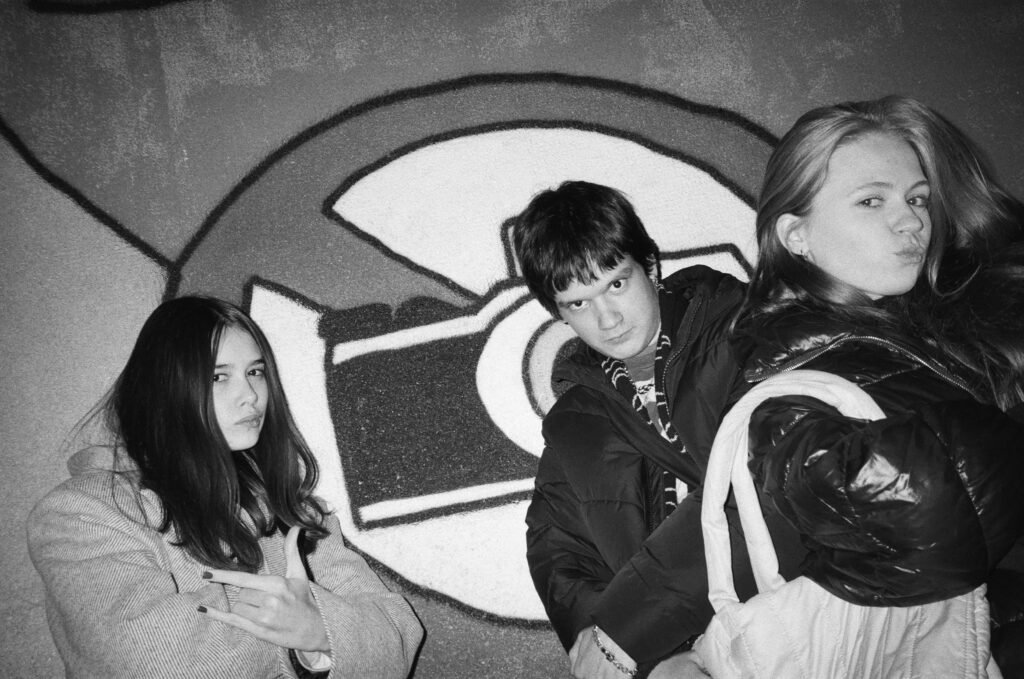Welcome to English Recapes, your trusted hub for practical communication tips and relationship insights. Picture this. You ask a friend about weekend plans. They shrug and say, “I don’t know.” The conversation stalls. Frustrating, right? Yet, a smart reply can spark laughter or deeper talk. This article equips you with powerful responses. Draw from coaching wisdom, witty comebacks, and professional strategies. Turn “IDK” into engaging moments. Let’s dive in.
Why People Say “I Don’t Know”
People often say “I don’t know” for many reasons. For instance, they might feel overwhelmed. Or, they could lack information. Sometimes, fear plays a role. They worry about judgment. Additionally, it signals disinterest. However, it rarely means a dead end. Instead, view it as a starting point. Probe gently. You might uncover hidden thoughts.
Moreover, societal pressures contribute. Many fear seeming weak. So, they default to IDK. But recognize this. It opens doors for connection. For example, in coaching, clients use IDK to avoid tough truths. Like quitting a job. Or facing conflict. Understand these layers. Then, respond effectively.
One key insight stands out. When someone says IDK, they often do know deep down. Yet, admitting it scares them. Perhaps it demands change. Or reveals vulnerability. Therefore, patience matters. Build trust. Create safety. This way, real answers emerge.
Understanding the Emotional Side of IDK
Emotions drive IDK responses. Anxiety often lurks beneath. People feel unsure. They doubt themselves. Empathy helps here. Acknowledge their feelings. Say, “I get it. Uncertainty feels tough.” This builds rapport.
Furthermore, frustration can arise. Not knowing irritates. Show understanding. For instance, reply with, “I’ve been there too.” It normalizes the experience. Additionally, IDK might stem from overload. Too many options confuse. Break it down. Ask simple questions.
Consider this deeper aspect. Rejecting inner thoughts harms self-acceptance. When we ignore true feelings, progress stalls. We focus on “shoulds” instead of reality. However, honoring fears unlocks growth. Explore judgments. Discuss options. Remind them: Feelings don’t define truth.
In relationships, IDK affects bonds. It halts talks. Yet, thoughtful replies strengthen ties. For example, in family settings, it dodges decisions. Respond kindly. Encourage sharing. This fosters openness.
40 More Engaging Replies to “I Don’t Know”
- That’s fine—let’s flip a coin and see what fate decides!
- No problem. What if we crowdsourced ideas from friends?
- Got it. How about we list pros and cons to narrow it down?
- Alright, let’s pretend you do know—what’s your gut saying?
- Fair enough. Shall we Google it together for inspiration?
- Understood. What similar situations have you handled before?
- Cool. Let’s role-play scenarios to spark some thoughts.
- No worries. Imagine the ideal outcome—what steps get us there?
- Okay. What one small decision feels easiest right now?
- That’s okay. Let’s draw a mind map to visualize options.
- Sure. How would your best friend advise you here?
- Gotcha. What excites you most about possible choices?
- Fine by me. Let’s set a timer and brainstorm freely.
- Alright. What fears are holding back a clear answer?
- No issue. Shall we watch a quick video for ideas?
- Understood. How does this tie into your long-term goals?
- Cool. Let’s rank potential answers from 1 to 10.
- That’s fine. What if we eliminated the worst options first?
- Okay. Share one random thought popping into your head.
- No problem. Let’s consult a book or app for guidance.
- Got it. What values should guide this decision?
- Fair enough. Imagine a year from now—what do you wish you’d chosen?
- Alright. Let’s text a mutual friend for their take.
- Sure. What patterns from past IDKs can we learn from?
- No worries. Shall we take a walk and chat it out?
- Understood. How about journaling your thoughts quickly?
- Cool. What if we turned this into a fun game?
- Fine by me. Let’s prioritize based on urgency.
- Okay. Share what’s confusing you the most.
- No issue. What resources do we have at hand?
- Gotcha. Let’s experiment with a trial run.
- That’s okay. How would a hero from your favorite story respond?
- Alright. What emotions are tied to this uncertainty?
- Sure. Let’s divide it into yes/no questions.
- No problem. Imagine advice from your future self.
- Understood. What if we combined two ideas?
- Cool. Let’s poll an online community anonymously.
- That’s fine. What one word describes your hesitation?
- Okay. Shall we meditate on it for a minute?
- No worries. Let’s revisit after a quick break.
 General Strategies for Responding
General Strategies for Responding
Start with basics. Use open-ended questions. For example, ask, “What comes to mind first?” It prompts thought. Additionally, offer help. Say, “Let’s figure it out together.” This shows support.
Moreover, seek clarification. Reply, “Could you elaborate?” It buys time. Or, suggest resources. Mention a helpful article. Furthermore, redirect gently. Shift to related topics. Say, “What about this angle?”
Here are key strategies in bullets:
- Acknowledge uncertainty: “That’s okay. We all face it.”
- Encourage brainstorming: “Let’s list ideas.”
- Show empathy: “I understand feeling stuck.”
- Provide alternatives: “Try this approach instead.”
- Follow up later: “Let’s revisit this soon.”
These tactics work across scenarios. They turn IDK into productive dialogue.
Humorous and Witty Comebacks
Humor lightens IDK moments. It keeps vibes fun. For general chats, try, “Your brain’s on airplane mode, huh?” It sparks laughs. Or, “IDK? That’s your whole personality!” Use sparingly. Ensure rapport.
In planning, poke fun. Say, “IDK? Guess we’re vibing in limbo!” For work, quip, “IDK? Boss won’t love that.” Food choices? “IDK? My stomach’s starving here!” Movies? “IDK? Netflix won’t pick itself.”
More examples:
- Travel: “IDK? The trip plans itself?”
- Workouts: “IDK? Pick reps or we’re done!”
- Shopping: “IDK? The cart’s lonely!”
- Dates: “IDK? Pick a spot or eat air!”
- Games: “IDK? The dice wait!”
Timing matters. Deliver with a smile. Emojis boost texts. Like 😂 for sass. However, match context. Keep playful. Avoid meanness.
Humor shines in groups. In chats, say, “Your texts slack!” It revives talks. For the family, “Mom won’t buy that!” Adds warmth. Evolve zingers. Stay fresh. If they laugh, follow up. “Give a real answer now!”
Professional and Interview Replies
- In jobs, IDK needs poise. Don’t panic. Respond smartly. For interviews, say, “I don’t know, but here’s how I’d find out.” Show problem-solving. Or, ask, “Could you elaborate?” It clarifies.
- Additionally, express interest. “I’d like the answer.” It demonstrates curiosity. Redirect too. “On a similar note…” Tie to strengths. Honesty beats lies. Employers value it.
- Consider this scenario. An interviewer asks a tough question. You blank. Reply, “I don’t know yet. I’d research via [method].” It highlights initiative. Follow up post-interview. Email what you learned. Like dogfooding examples. You researched later.
- In meetings, use, “IDK? Not on the spreadsheet!” Lightly. For coworkers, “Let’s brainstorm.” It collaborates. Avoid dwelling. Move on. Remember, not knowing shows humanity. It invites growth.
One extended insight into professional handling of IDK reveals a multifaceted approach that combines honesty with strategic redirection. Professionals often encounter situations where admitting ignorance feels risky, yet it actually builds credibility when paired with proactive steps. For instance, in high-stakes meetings, instead of fumbling, you pivot by outlining a clear plan to acquire the needed information, such as consulting databases, reaching out to experts, or conducting quick experiments. This not only mitigates the immediate awkwardness but also positions you as a resourceful team player. Moreover, in client interactions, responding to IDK with empathy and follow-through—perhaps by scheduling a dedicated session to explore the unknown—fosters trust and long-term relationships. Over time, this habit transforms potential weaknesses into opportunities for collaborative innovation, ultimately enhancing your professional reputation and opening doors to new learning experiences that might otherwise remain closed.
Coaching Techniques to Uncover Insights
Coaching turns IDK into ahas. Trust instincts. Explore gently. Use silence first. Wait calmly. Often, answers surface.
Soft questions help. “What are you pretending not to know?” Or, “If you secretly knew?” Breathe deeply. Relax into uncertainty.
 More techniques:
More techniques:
- Sensory prompts: “If it had a color, what?”
- Helicopter view: “From above, what do you see?”
- Unconscious mind: “Let a picture form.”
- Feelings check: “How do you feel now?”
- Underneath probe: “What’s beneath IDK?”
Build safety. Be compassionate. Reflect back without judgment. Honor all parts. Even fears. This unlocks the truth.
In therapy or mentoring, IDK signals resistance. Address it kindly. Remind: Thoughts aren’t facts. Explore options. Prepare plans. It empowers.
Encouraging Exploration and Critical Thinking
Foster curiosity. Ask, “What sparked this?” Or, “How does it connect to the past?” It deepens.
Challenge views. “From another angle?” Push boundaries. Question assumptions.
Bullets for encouragement:
- Break down: “Into smaller parts?”
- Real applications: “Where useful?”
- Evidence: “What supports views?”
- Implications: “If we find it?”
- Alternatives: “Other methods?”
Reassure too. “Not knowing starts discovery.” Share stories. “I faced something similar.” It motivates me.
For kids or students, use, “Let’s explore!” Make it fun. In teams, brainstorm. It builds skills.
Common Mistakes to Avoid
Steer clear of pitfalls. Don’t dismiss it. “Figure it out” is alienating. Instead, support.
Avoid overload. Too much info overwhelms. Keep it simple.
 More errors:
More errors:
- Being pushy: Let them lead.
- Harsh jabs: Hurt feelings.
- Bland replies: “Okay” stalls.
- Long rants: Bore them.
- Assuming: Ask first.
Active listening fixes this. Nod. Eye contact. Acknowledge.
Actionable Tips for Everyday Use
Apply these daily. In texts, add emojis. 😂 boosts humor.
Personalize. For foodies, tie to meals. For gamers, games.
Tips in bullets:
- Time right: After IDK, quip fast.
- Match vibe: Light for friends, pro for work.
- Follow up: “One idea?”
- Evolve: Switch replies.
- Teach: Model for shy ones.
Practice. Role-play. It sharpens.
In dates, “IDK? Sparks wait!” Keeps romance alive.
For self, say IDK honestly. Then seek answers.
Conclusion
Mastering replies to “I don’t know” transforms talks. From humor to coaching, these tools empower. They build bonds. Foster growth. Start small. Try one today. Notice changes.
At English Recapes, we love hearing your stories. Share in comments: What’s your go-to IDK reply? How did it work? Subscribe for more tips. Turn every IDK into an opportunity. Act now. Your conversations await.
FAQs
1. Why is it important to know how to respond to “I don’t know”?
Learning how to respond to “I don’t know” helps you keep conversations flowing instead of letting them stall. It allows you to encourage deeper thinking, show empathy, and strengthen personal or professional connections.
2. What are the best ways to respond when someone says “I don’t know”?
The best strategies for how to respond to “I don’t know” include using humor, asking open-ended questions, offering support, or breaking the issue into smaller parts. These approaches turn uncertainty into an opportunity for meaningful dialogue.
3. How can I respond to “I don’t know” in a professional setting?
In professional situations, how you respond to “I don’t know” can highlight your problem-solving skills. Try saying, “That’s okay—let’s figure it out together,” or suggest resources and next steps. This shows initiative and teamwork.
4. What are some witty comebacks for “I don’t know”?
If you’re wondering how to respond to “I don’t know” in a lighthearted way, witty comebacks can keep the mood fun. For example, “IDK? That’s your whole personality!” or “Guess we’re vibing in limbo!” work well in casual conversations.
5. How should I respond to “I don’t know” in relationships?
When a partner says “I don’t know,” empathy is key. Knowing how to respond to “I don’t know” with patience and encouragement—like “I understand, let’s think it through together”—can help build trust and strengthen your relationship.
6. Can coaching techniques improve how to respond to “I don’t know”?
Yes. Coaching techniques are powerful for learning how to respond to “I don’t know.” Asking reflective questions such as, “What would your gut say?” or “If you secretly knew the answer, what would it be?” often unlocks deeper insights.















